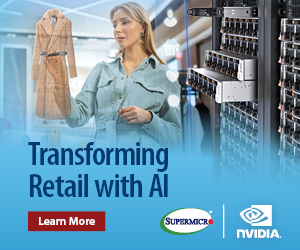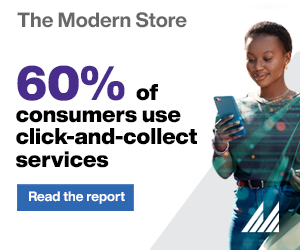NRF Europe 2025: How AI and automation are shaping the future of retail
METRO, NVIDIA and Lenovo shared how AI is transforming retail with generative AI, automation, and robotics at the Paris event this week, reports Miya Knights, Retail Technology Publisher
Artificial intelligence (AI) is transforming the retail landscape, with global technology leaders urging businesses to start small but act now to capture its full potential.
Speaking at NRF Europe 2025, Lenovo and NVIDIA experts joined retailers and several innovative tech providers to explore how AI can drive operational efficiency, enhance the customer experience, and unlock new revenue streams for retailers.
Olaf Maecker, Vice President of AI & Automation at international food wholesaler METRO, joined Dr Mauro Arruda, Director of AI Solutions and Services for EMEA at Lenovo, and Ran Hu, NVIDIA Director of AI for Retail & CPG, on a panel to discuss the impact of AI on business.
“It is, for us, a game-changer,” Maecker said. “When you are thinking about retail and wholesale processes, you have a lot of topics where you can apply AI.”
Strategic AI in retail challenges
Dr Arruda highlighted a vision for AI-powered retail that spans everything from front-end engagement to back-office operations. But he also cited some challenges.
“Quality is really one important topic,” he said. “But you have other challenges, like talent management, justifying ROI every time you launch a project, and governance.”
Arruda advised retailers to begin by identifying two or three clear business challenges tied to the profit and loss statement. Dedicated teams should then work on these projects with executive sponsorship and well-defined success metrics in place.
Challenges to scaling AI remain, including data quality, context, and implementation complexity. Lenovo and NVIDIA are tackling these barriers through initiatives such as Lenovo’s AI Innovator Program, which offers best practices and support for retailers.
Generative AI drives innovation
NVIDIA showcased its NeMo platform for generative AI and Omniverse platform for physical AI and warehouse optimisation, revealing how these tools are already helping retailers tackle critical operational challenges.
Hu said these included shrinkage reduction through advanced product recognition at checkout and personalisation in ecommerce recommendations.
She added that consumer packaged goods (CPG) companies are using generative AI to support product design innovation, while advanced warehouse automation is boosting speed and accuracy.
“As NVIDIA, we are not an end solution provider, so that's why we work very diligently and nurture an extensive ecosystem of technology partners," added Hu.
Vision for the store of 2030
The panel agreed that, in stores, the next wave of AI-powered digital co-workers and robotics will handle repetitive tasks, enabling staff to focus on high-value, customer-facing roles.
In a ‘store of the future’ where humans and AI work in seamless collaboration, Maecker suggested robots could manage routine tasks. By contrast, AI-powered assistants and human associates collaborate to deliver highly personalised service.
“Maybe it's at night and my restaurant is closed at 3 am, I can call AI to change my opening hours or order more salmon, because I had a very successful day,” he said. “And just the next day, it will be there.”
Arruda concluded: “It’s about combining the best of people and machines to build a smarter, more sustainable retail future.”
AI spotlight at StartUp Hub
The exhibition showcased several startups using AI to power innovation for retailers and brands. The StartUp Hub organised its exhibitors into four categories: checkout and payment; efficiency; online experience; in-store experience; and marketing.
While the majority focused on payment systems, Markmi’s markdown optimisations can inform pricing, promotions, and point-of-sale (POS) strategy. Fashion retailers, including G-Star and C&A, use it to improve pricing decisions, prevent over-discounting, and ensure markdowns support brand positioning and customer expectations.
Efficiency and in-store experience innovations focused on waste reduction, stock freshness, and profitability enhancement, while also supporting sustainable in-store journeys. Smartway and Nimbleway both focus heavily on these areas.
Nimbleway provides real-time online data pipelines to feed AI tools used by ecommerce and CPG brands, such as Coca-Cola Japan and Uber Eats. Monoprix (Tunisia) is rolling out Smartway’s inventory systems for managing short-dated stock in 85 stores as part of a ‘zero waste’ initiative.





